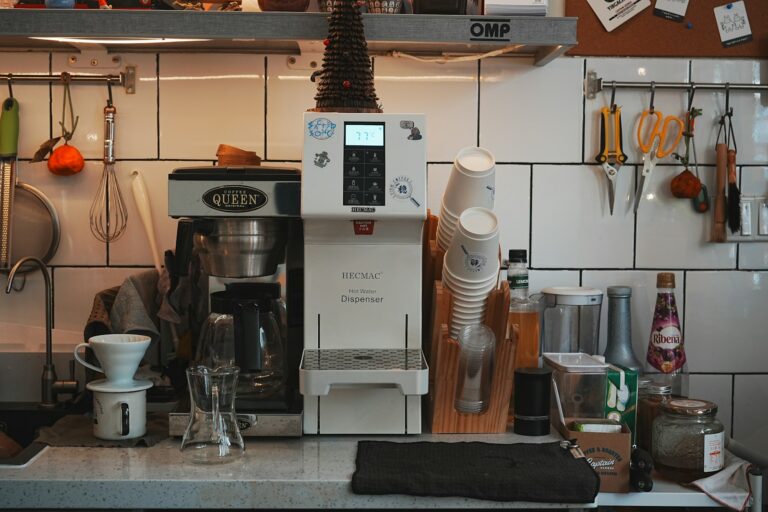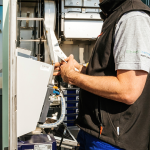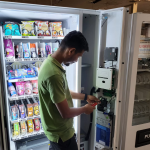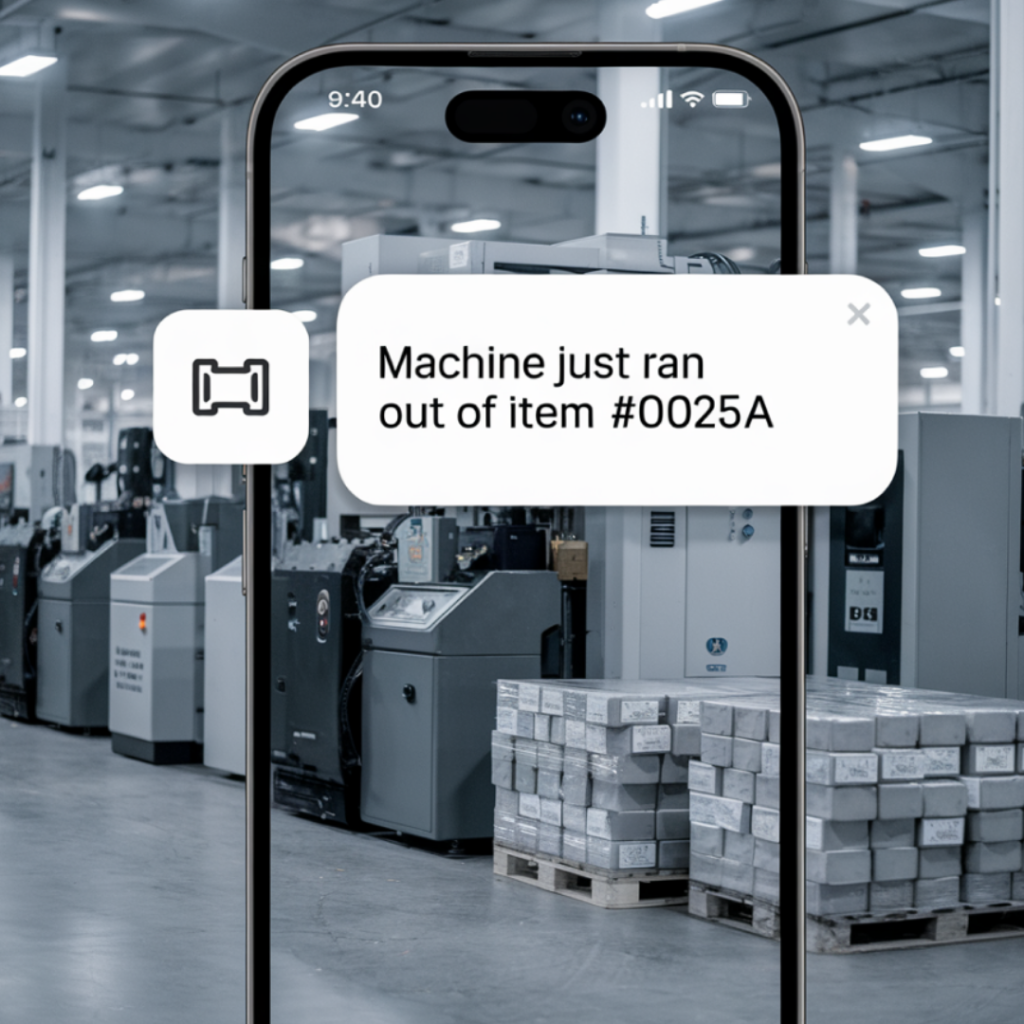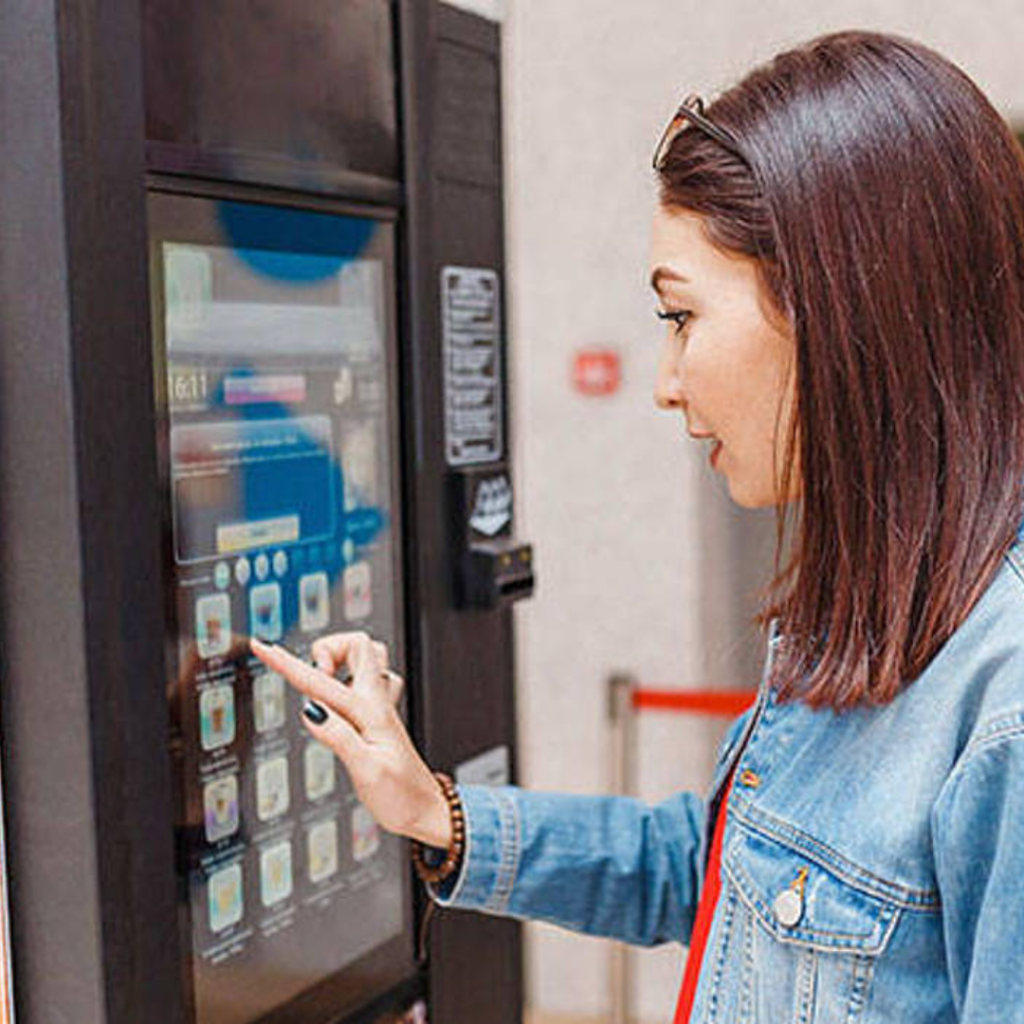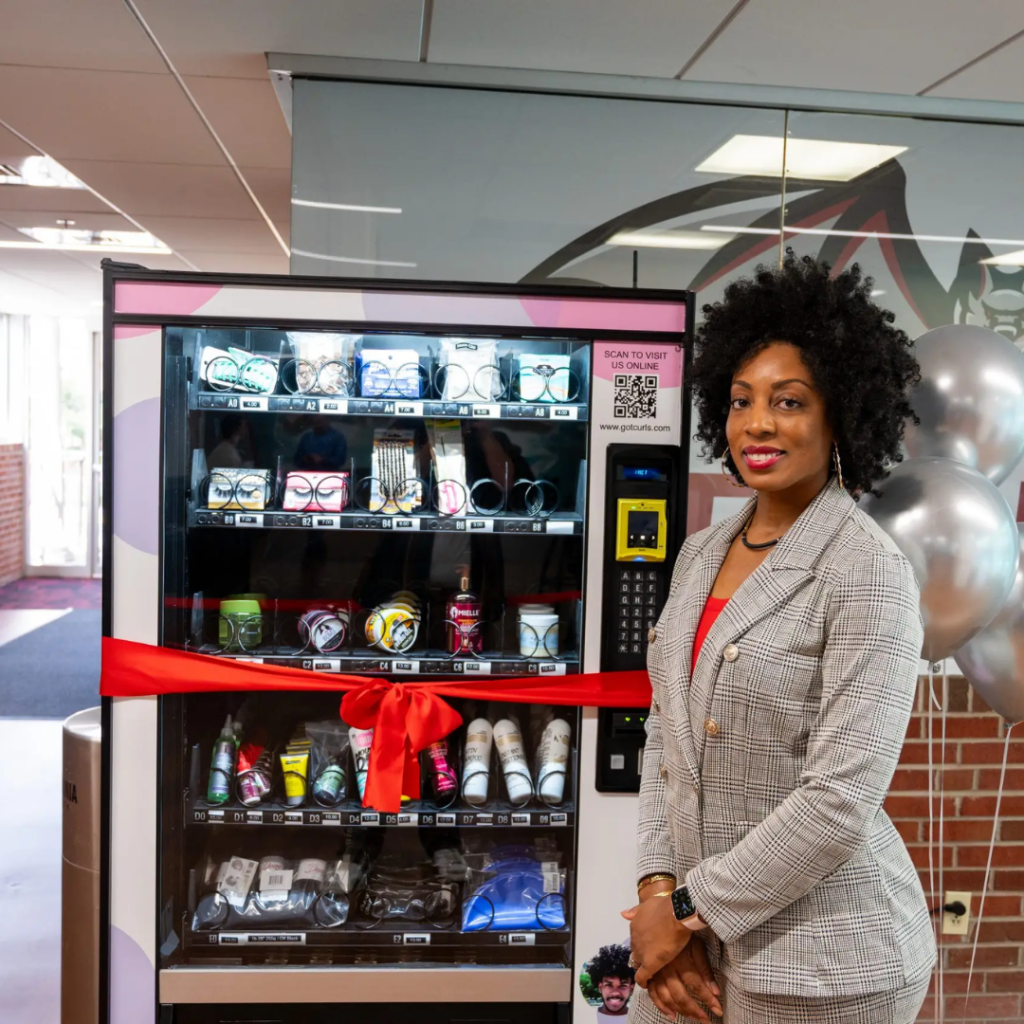The Complete Guide to Vending Machine Warehouses for Buyers and Operators.

Vending machine warehouses are the foundation of a successful vending operation. They store, service, and distribute the machines that keep routes running and help operators expand quickly. For buyers managing multiple locations, having a trusted warehouse partner means faster access to equipment, consistent product quality, and dependable technical support.
As the demand for modern, connected vending solutions grows, these warehouses have become more than storage centers. They function as supply and logistics hubs for commercial vending machines, offering bulk purchasing, repair services, and setup assistance that simplify large-scale operations and strengthen long-term profitability.
What Is a Vending Machine Warehouse?
A vending machine warehouse is a specialized facility that manages the storage, testing, and distribution of vending machines and related equipment. It serves as a central hub where operators can find ready-to-use machines, spare parts, and technical support under one roof. These warehouses simplify the process of sourcing reliable equipment by ensuring that every machine is inspected, calibrated, and prepared for immediate deployment.
Beyond supplying machines, many warehouses offer additional services that streamline vending operations. These include inventory management, refurbishing used units, and coordinating large deliveries for businesses expanding across multiple sites. By maintaining an organized system of stock and logistics, a warehouse helps operators save time and reduce costs while keeping their machines in continuous operation.
Modern vending warehouses also support modern vending machines that integrate cloud software and remote monitoring tools. This allows operators to track performance, receive maintenance alerts, and plan restocking schedules more efficiently. Whether a buyer manages ten machines or hundreds, a well-equipped warehouse is a vital link between manufacturers, suppliers, and successful field operations.
Common Types of Vending Machines Found in Warehouses
Vending machine warehouse stock a wide range of equipment designed for different business needs. Each type serves a specific purpose and location, helping operators match machines to the right customer base.
Snack Vending Machines
Snack machines are among the most common. They hold packaged foods like chips, candy bars, and healthy snacks. These units perform best in offices, schools, and fitness centers where people want quick and easy options.
Drink Vending Machines
Drink machines offer bottled water, soda, energy drinks, and even coffee. Many new models feature cooling systems and touchless payment options, improving both reliability and user convenience.
Combo Vending Machines
Combo machines combine snacks and beverages in one unit. They save space and simplify restocking, making them ideal for smaller sites or mixed-traffic locations.
Age Verification Vending Machines
Age verification vending machines are a growing segment in the industry. These units sell regulated products such as vape items, CBD, or alcohol. Built-in ID scanners and biometric tools confirm age before purchase, keeping businesses compliant with local laws.
Warehouses that stock age verification vending machines often work with manufacturers that specialize in compliance technology. As demand for secure automated retail increases, these machines are becoming standard in modern vending operations.
Inside a Modern Vending Machine Warehouse
Modern vending machine warehouses are more than storage spaces. They function as organized, high-efficiency centers that prepare machines for deployment. Each unit is inspected, tested, and calibrated to ensure smooth operation before reaching the customer.
Technicians check cooling systems, payment readers, and smart interfaces for accuracy. This process helps reduce breakdowns and ensures every machine performs consistently in the field. Many warehouses also offer customization, allowing operators to add cashless payment modules, branding, or specific product configurations.
Warehouse management now depends heavily on cloud software. These systems track inventory, deliveries, and service requests in real time. With cloud-based tools, suppliers can monitor stock levels, schedule shipments, and update buyers about order progress instantly.
Larger facilities handle logistics for bulk commercial orders. Forklifts and conveyor systems move machines safely, while digital tracking labels maintain order accuracy. By combining skilled labor with automation, a modern warehouse shortens delivery times and improves operational reliability for every vending operator.
Benefits of Buying from a Vending Machine Warehouse
Partnering with a vending machine warehouse offers clear advantages for commercial operators. These facilities combine supply, service, and support under one roof, helping businesses expand faster and operate more efficiently.
1. Bulk Purchase Advantages
- Warehouses offer better pricing for large orders, making it easier to scale operations across multiple locations.
- Buying in quantity ensures consistent machine models and features throughout your route.
- Operators also gain priority access to new inventory during high-demand seasons.
2. Cost Efficiency
- Bulk orders reduce per-unit pricing compared with single-machine purchases.
- Warehouses often include setup or delivery discounts for returning customers.
- Some suppliers offer refurbished units at lower prices, ideal for new operators.
3. One-Stop Convenience
- Everything is available in one place: machines, replacement parts, and software upgrades.
- This reduces time spent coordinating between multiple vendors.
- Many warehouses also supply accessories such as payment readers and branding kits.
4. Technical and After-Sales Support
- Buyers receive setup help, warranty coverage, and maintenance assistance.
- Support teams can guide installation, payment integration, and product configuration.
- Reliable after-sales service keeps machines running longer and reduces downtime.
5. Access to Financing Programs
Many warehouses work with financing services that offer flexible payment plans. Lease-to-own options make it easier to expand a vending route without large upfront costs. These programs allow operators to maintain cash flow while adding new commercial vending machines to their network.
| Benefit Area | Key Advantage | Result for Operators |
|---|---|---|
| Bulk Purchases | Discounted pricing and uniform models | Lower costs, easier maintenance |
| Technical Support | Setup, warranty, and training | Fewer breakdowns, faster setup |
| Financing | Flexible lease or purchase plans | Faster growth with less upfront capital |
These combined benefits make warehouses essential partners in long-term business growth. For most vending operators, buying directly from a warehouse delivers better pricing, stronger support, and a smoother path to expansion.
Choosing the Right Vending Machine Warehouse or Supplier
Selecting the right warehouse or supplier can determine the long-term success of a vending business. A dependable partner provides more than equipment. They offer reliability, technical support, and clear communication that keeps every part of your operation on track.
Reputation and Reliability
Before committing to a supplier, review their track record. Look for consistent customer feedback, service history, and proven experience with commercial vending machines. Reputable suppliers maintain transparent pricing, realistic delivery timelines, and responsive support teams. This helps operators avoid delays and costly mistakes.
Range of Available Machines
The best warehouses stock a variety of models, including snack, drink, combo, and age verification vending machines. A diverse selection gives buyers flexibility to match machines with different location needs and customer demographics. Access to modern, energy-efficient units also supports long-term profitability through reduced power consumption and higher reliability.
Delivery, Warranty, and Support Coverage
Dependable delivery and warranty terms protect your investment. Confirm that the supplier handles shipping, installation, and testing before delivery. A solid warranty program shows confidence in equipment quality and ensures help is available when issues arise. Responsive technical support minimizes downtime and keeps operations moving smoothly.
Evaluating Commercial Reliability
Reliable suppliers combine experience, inventory capacity, and clear financing options. Many offer financing services that make expansion manageable without heavy upfront costs. Consistency in delivery, equipment testing, and after-sales care defines a strong warehouse partnership. When these factors align, operators can scale faster and maintain quality across every location.
Financing and Bulk Purchase Options
Expanding a vending business often requires significant investment. However, vending machine warehouses make this process easier by offering flexible financing and bulk purchase programs. These options help operators grow faster without straining cash flow or delaying expansion plans.
Flexible Financing Programs
Many warehouses partner with financing services to support both new and established operators. Instead of paying the full cost upfront, buyers can choose lease-to-own or installment plans. As a result, operators gain access to high-quality equipment immediately while maintaining liquidity for daily operations.
Moreover, financing programs often include maintenance and warranty coverage during the payment period. This added security helps operators avoid unexpected costs and ensures steady revenue from every machine in the field.
Advantages of Bulk Purchasing
Bulk purchasing remains one of the most effective ways to lower costs. When operators buy multiple commercial vending machines at once, they receive discounted rates and faster delivery. Therefore, scaling becomes simpler and more predictable. In addition, large orders often qualify for bundled services such as setup, calibration, and shipment tracking.
Furthermore, warehouses prefer long-term clients who place repeat bulk orders. These relationships can lead to priority access to new inventory and early updates on technology releases. Consequently, buyers stay competitive in markets that demand modern, reliable vending options.
Making the Right Financial Choice
Before selecting a financing or bulk plan, operators should compare terms carefully. Interest rates, deposit requirements, and warranty coverage can vary. However, a transparent supplier will clearly outline every cost and benefit. With the right plan, expanding a vending fleet becomes a manageable and profitable step toward long-term growth.
Planning Your Setup: From Warehouse to Location
Buying machines from a warehouse is only the first step. To achieve consistent profits, operators must plan delivery, setup, and placement with precision. Each phase influences performance, customer reach, and return on investment. Therefore, a clear setup plan ensures smoother operations and faster revenue generation.
Coordinating Delivery and Installation
After purchase, the warehouse arranges transport and installation. Reliable suppliers use protective packaging, tracked shipping, and professional movers to prevent damage. In addition, they often offer setup assistance to calibrate cooling systems and test payment readers on-site. As a result, machines begin operating without costly delays or early repairs.
Optimizing Location Placement
Location directly affects sales potential. High-traffic spots such as gyms, schools, and office complexes attract steady usage and faster inventory turnover. However, success depends on choosing sites that match the product mix. Healthy snack machines perform best in wellness centers, while drink machines succeed in busy workplaces. Using location matching helps identify spaces that align with target audiences and revenue goals.
Calculating Setup and Technology Costs
Before installation, operators should estimate total setup costs, including delivery fees, product stocking, and software integration. Modern cloud software can manage inventory and track sales remotely. This technology reduces manual work and prevents stockouts. Moreover, adding cashless payment systems and smart dashboards improves customer convenience and increases overall sales.
Creating a Scalable Setup Plan
Each location should be part of a wider growth strategy. Therefore, operators need a scalable plan that includes regular maintenance, remote monitoring, and route scheduling. With organized planning and warehouse coordination, a small vending network can grow into a multi-location business supported by reliable logistics and real-time data.
Case Snapshot: Scaling Efficiently with a Warehouse Partner
Consider a regional vending operator managing fifty machines across several cities. When sales began rising, the team needed to expand quickly but lacked internal logistics support. Partnering with a vending machine warehouse solved both challenges efficiently.
The warehouse handled bulk procurement, delivery scheduling, and technical setup. As a result, the operator added twenty new commercial vending machines within six weeks. In addition, the supplier arranged financing services that spread the equipment cost over twelve months, preserving working capital for product restocking and route development.
Moreover, the partnership reduced downtime and simplified maintenance. The warehouse provided access to spare parts, repair technicians, and software updates through a centralized system. Therefore, every unit stayed connected, serviced, and ready to operate. Within one year, the operator reported a twenty-five percent increase in route profitability and improved consistency across all locations.
This example highlights how warehouse partnerships can speed up growth while lowering operational stress. With the right support, even mid-size operators can scale efficiently and compete in larger markets without overextending resources.
Conclusion: Building Long-Term Success with the Right Warehouse
Vending machine warehouses play a critical role in every stage of business growth. They simplify purchasing, improve delivery speed, and provide the technical support needed to keep operations running smoothly. Therefore, choosing a dependable partner is one of the smartest decisions a vending operator can make.
Moreover, the right warehouse partnership combines technology, financing, and logistics into a single, efficient system. With access to financing services, inventory management, and location matching support, operators can expand confidently and maintain consistent quality across all sites. As the vending industry continues to evolve, working with a trusted supplier ensures stability, scalability, and long-term success.

